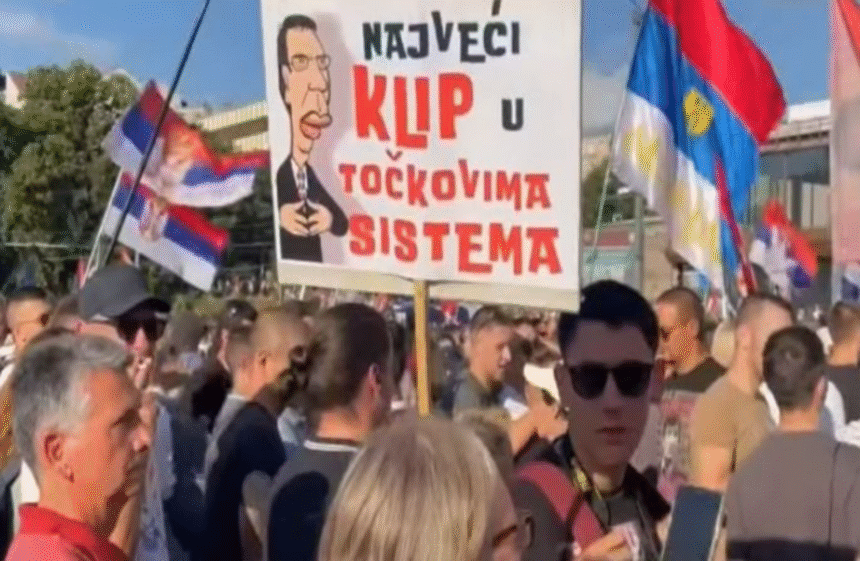Calls for the European Union to intervene in Serbia’s months-long political crisis are growing louder, particularly from the opposition. Student movements and civil society organizations are urging Brussels not to remain on the sidelines, emphasizing that only the EU and the broader West have demonstrated genuine interest in the state of democracy in Serbia. Surprisingly, the ruling authorities are now also appealing for EU involvement.
As protests continue across Serbia, the opposition, students, and civic groups are demanding a more active EU role in resolving the deepening political turmoil. “It is possible for the EU and European states to mediate in Serbia, just as they did in North Macedonia in 2016 and in Montenegro. Serbia is an EU candidate country and has clear obligations,” stated Aleksandar Radovanović from the Free Citizens Movement.
The opposition has specifically called for stronger EU condemnation of the state’s repression against protesters, including reports of violence, arrests, and attacks on journalists. However, Serbia’s ruling coalition is also seeking Brussels’ attention—albeit to blame the demonstrators, labeling them as extremists and hooligans.
“Through formal letters, I will ask European institutions and our partners why they are turning a blind eye to the extremism and hooliganism being promoted by the demonstrators,” said Ana Brnabić, Speaker of the Serbian Parliament.
EU Enlargement Commissioner Marta Kos had earlier expressed concern over the excessive use of force against protesters and reminded authorities of the importance of safeguarding the right to peaceful assembly. While segments of Serbian society are urging stronger EU intervention, analysts argue that the EU continues to pursue a cautious approach toward President Aleksandar Vučić, viewing him as a strategic partner.
“The EU does not want to jeopardize its security and geopolitical interests, but it risks losing influence among pro-European citizens. At the very least, it should increase its criticism of repression in Serbia,” said political scientist Aleksandar Ivković.
The European Union’s response will face a crucial test in early September, when the European Parliament is expected to debate a resolution on the situation in Serbia—focusing on police repression, calls for snap elections, and the need for democratic reforms.







